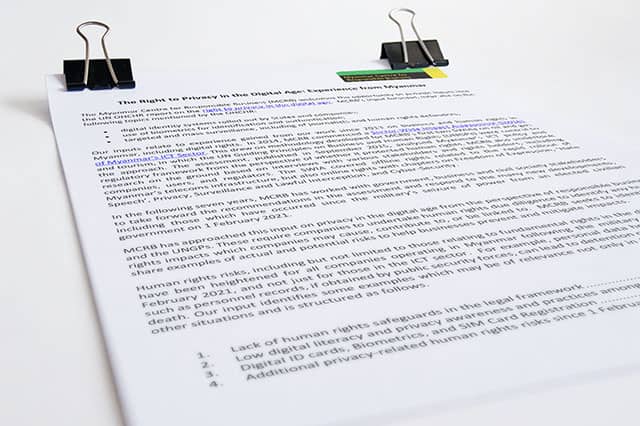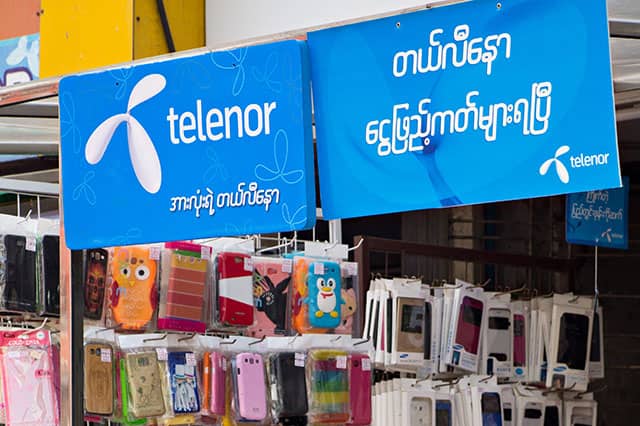MCRB Begins Field Research for ICT SWIA
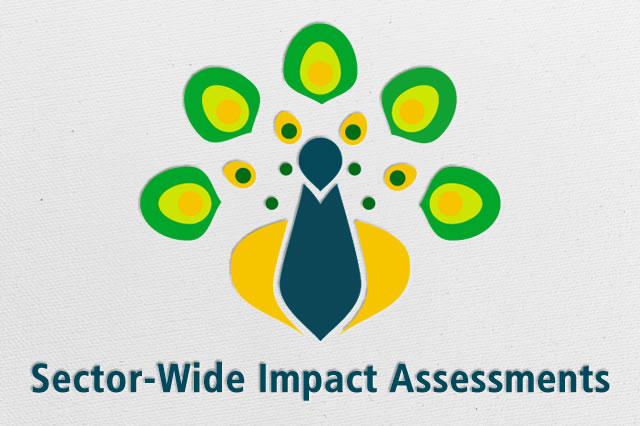
The Myanmar Centre for Responsible Business (MCRB) has completed initial scoping and research in preparation for the Information and Communication Technologies (ICT) Sector-Wide Impact Assessment (SWIA). MCRB will develop the ICT SWIA in partnership with the Institute for Human Rights and Business and the Danish Institute for Human Rights.
Sector-Wide Impact Assessment (SWIA) Objectives:
- Inform future company project-level impact assessments - companies carrying out project-level environmental and/or social impact assessments (ESIAs) can build on the findings in the SWIA to incorporate attention to human rights in their own impact assessment processes.
- Provide governments and parliamentarians with analysis and targeted recommendations on shaping policy and legislation, licensing and other initiatives to prevent and mitigate harms in the sector covered by the SWIA and to enhance the potential for positive outcomes of operations.
- Enable development partners to align their support and policies with the SWIA findings and recommendations so that human rights are better respected and protected in the sector.
- Support local communities in understanding and engaging on companies’ projects in their area in an informed way.
- Build the capacity of civil society, trade unions and media to better understand and participate in policy development and project planning and to leverage international standards and approaches in their advocacy and reporting.
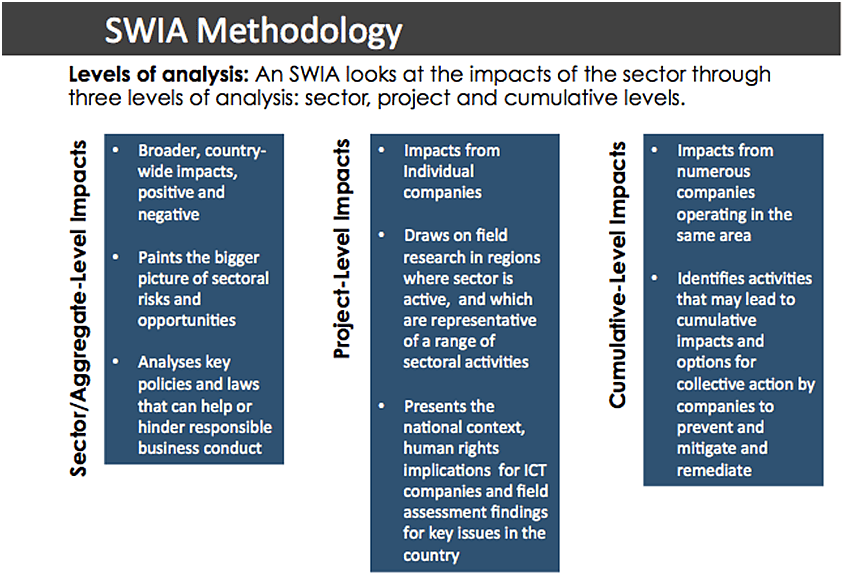
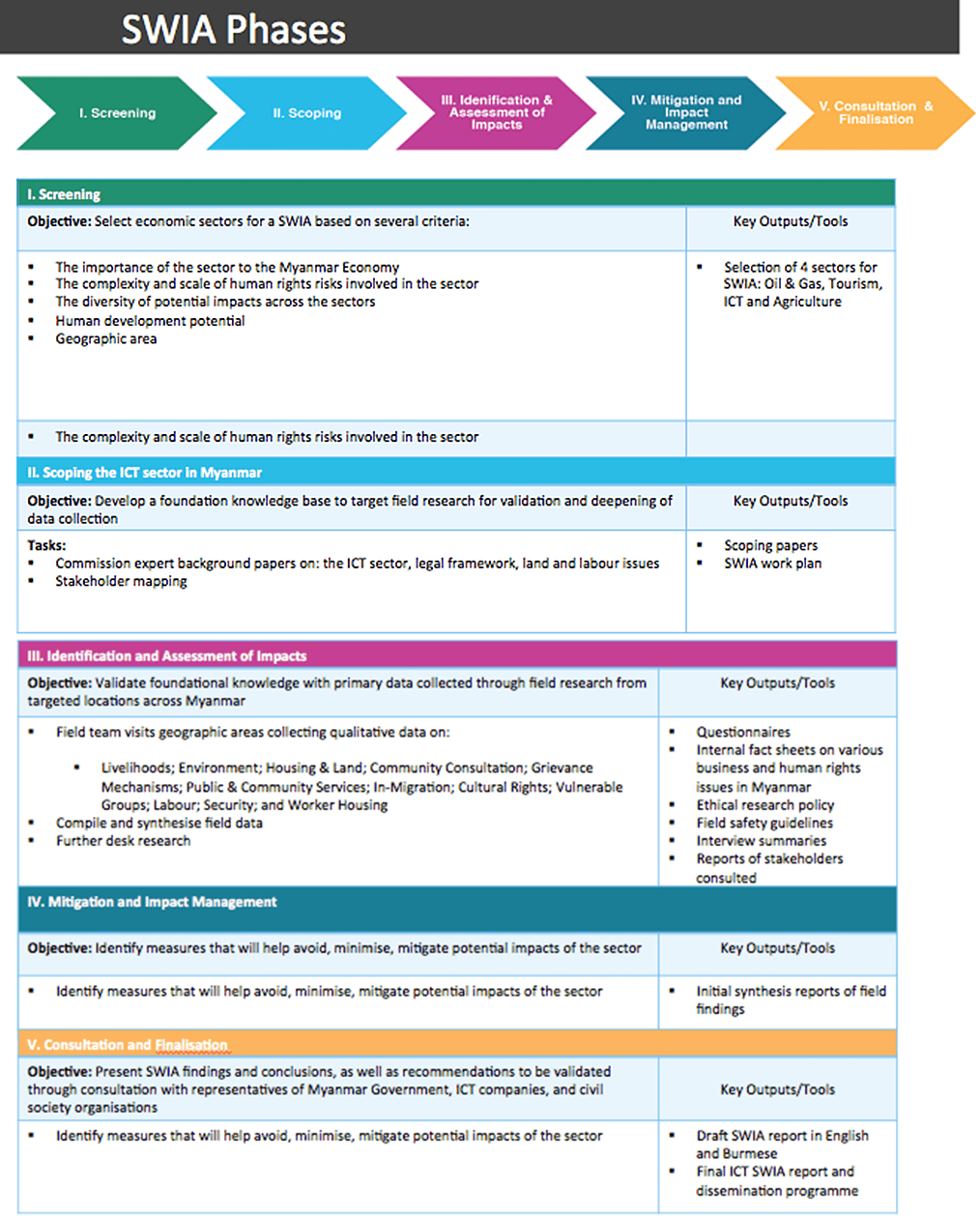
Why a SWIA on ICT in Myanmar?
- Unprecedented growth of the sector and a priority sector for the country. Myanmar’s telecommunications sector has recently liberalized with the addition of foreign operators and joint venture partners. Following the award of two integrated licenses to foreign operators in February 2014, an estimated $1 billion[1] is projected to flow into the country from the telecommunications industry in 2014 alone.
- With the telecommunications license tender process complete, a nationwide rollout is underway with aggressive voice and data coverage performance targets. Network infrastructure is being deployed throughout the country. Myanmar’s geographic and ethnic diversity require enhanced due diligence by business operating in the ICT sector. The ICT Master plan aims to achieve 30 million users by 2015 in mobile industry (50 % tele-density by 2015.)
- Opportunities for employment and economic development across the country for different stakeholders including youth, women, people with disabilities, ethnic groups and GLBT.
- Potential adverse impacts on a number of human rights linked to development of ICT such as right to privacy, freedom of expression as well as social media's role in promoting hate speech and violence.
- Key regulations surrounding lawful interception, data privacy, and access to information have not been signed into law. Previous laws impacting the ICT sector in Myanmar are also to be amended in 2015.
- Technology is transformative. The ICT sector has the ability to promote human rights through innovative applications and platforms. Increased speed, reliability and access to telecommunications services in Myanmar will support the development of new industries, products, and services across all sectors of the economy.
The ICT SWIA will explore sector impacts at the national, sector and project levels. It will provide information on potential impacts of the sector into the public domain for uptake and use by a wide range of audiences.
|
Impact Level |
Examples |
|
National Level |
2011-2014 ICT Master Plan, Telecommunications Law, Electronic Transactions Law, Computer Science Development Law, Legislation impacting e-commerce, freedom of information, cyber security (to be developed) |
|
Sector Level |
e-governance, Health benefits through access to information, accessibility to technical education or capacity building programs designed to enhance digital literacy, language localization, use of ICTs for resource mapping |
|
Project level |
Data Privacy, Access to Information and Censorship, workers, groups at risk (women, children, religious minorities, ethnic minorities), stakeholder engagement and grievance mechanisms, accessibility of sub-contractors and suppliers |
MCRB is currently engaging the following stakeholder groups. MCRB welcomes comments on the stakeholder groups below and draft research outline.
- Central Government
- Local Government
- Communities
- Political Parties
- Network Operators
- Passive Infrastructure Providers and Sub-Contractors (e.g. tower companies, construction companies)
- Active Infrastructure Providers (e.g. network equipment suppliers)
- Online Media
- Civil Society
- International Donors
- Multi-lateral Organizations
- ICT Subject Matter Experts
- Technological Universities
- ICT Training and Capacity Building Programs
Draft Research Outline:
- PART 1: INTRODUCTION
- PART 2: THE MYANMAR ICT CONTEXT, GOVERNMENT STRUCTURE & LEGAL FRAMEWORK
- History and current context of Myanmar’s ICT sector
- Current structure of the ICT sector
- Government institutions regulating ICT operations
- Policy frameworks for ICT operations in Myanmar
- Laws regulating ICT operations in Myanmar
- Laws relating to Access to Information/Privacy/Key Issues
- PART 3: SECTOR-LEVEL IMPACTS
- Economic impacts
- Governance impacts
- Environmental and social impacts
- Case studies
- PART 4: PROJECT LEVEL IMPACTS
- LAND
- National Context
- Human Rights Implications for Business
- Field Assessment Findings
- Linked initiatives in Myanmar and Relevant International Standards
- PRIVACY
- National Context
- Human Rights Implications for Business
- Field Assessment Findings
- Linked initiatives in Myanmar and Relevant International Standards
- ACCESS TO INFORMATION & CENSORSHIP
- National Context
- Human Rights Implications for Business
- Field Assessment Findings
- Linked initiatives in Myanmar and Relevant International Standards
- SURVEILLANCE & LAWFUL INTERCEPTION
- National Context
- Human Rights Implications for Business
- Field Assessment Findings
- Linked initiatives in Myanmar and Relevant International Standards
- WORKERS
- National Context
- Implications for Business
- Field Assessment Findings
- Linked initiatives in Myanmar and Relevant International Standards
- GROUPS AT RISK
- National Context
- Implications for Business
- Field Assessment Findings
- Linked initiatives in Myanmar and Relevant International Standards
- USERS
- National Context
- Implications for Business
- Field Assessment Findings
- Linked initiatives in Myanmar and Relevant International Standards
- PART 5: HATE SPEECH MONITORING RESULTS
- PART 6: RECOMMENDATIONS
- To the Government of Myanmar
- To ICT Companies
- To civil society
- To Investors
- To Donor/Host Governments
- APPENDICES
MCRB will be selecting preliminary locations for field research from the following areas (subject to change) and welcomes comments on the proposed locations.
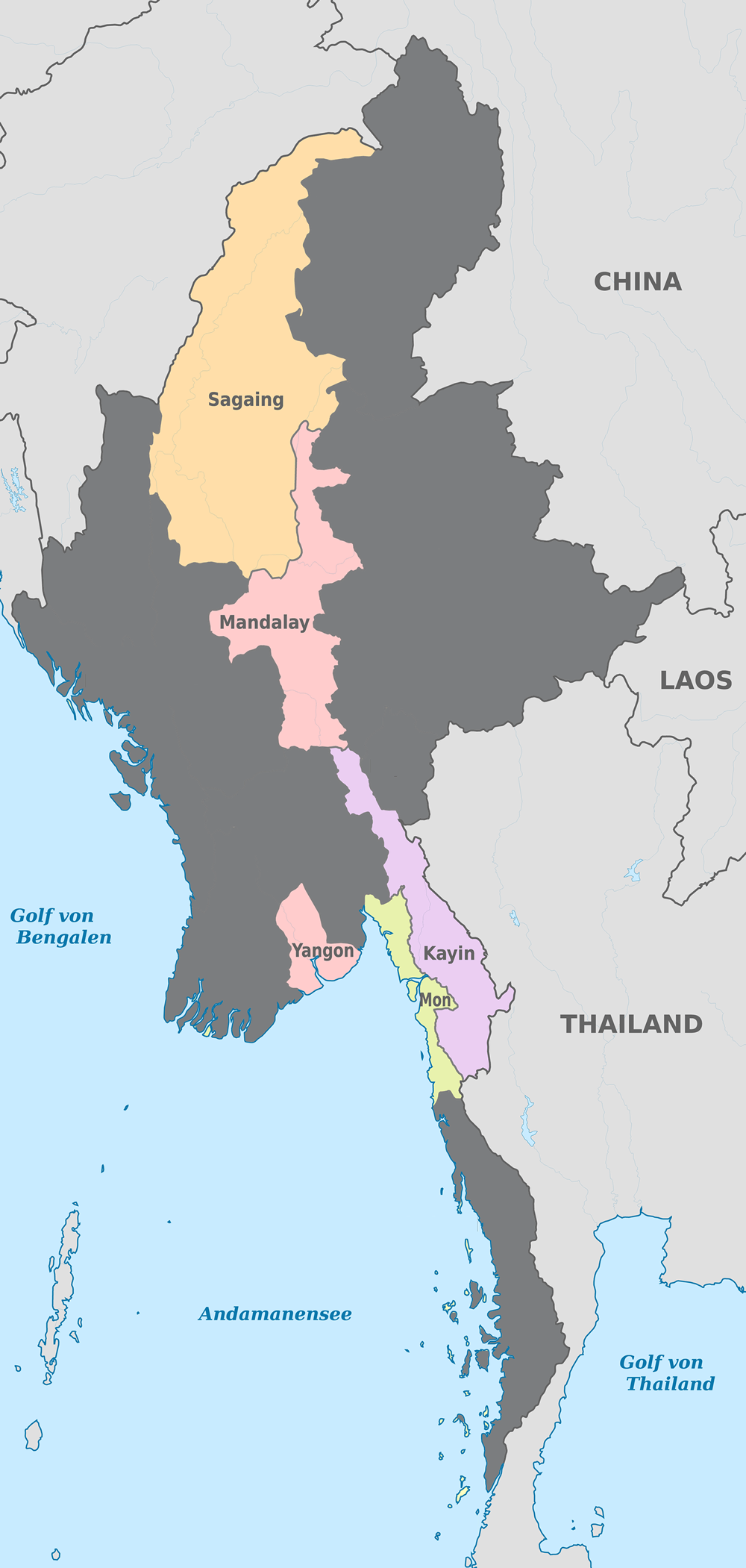
[1] Thuraswiss Issue 106, March 13, 2014 www.thuraswiss.com/sites/default/files/newsviews_13_03_2014.pdf
ဆက္စပ္ေသာ အေၾကာင္းအရာ
- Information and Communication Technologies (ICT) Sector and Digital Rights
- MCRB Submits Input to OHCHR on the Right to Privacy in the Digital Age
- MCRB Submits Input to OHCHR on the Practical Application of the UNGPs to the Tech Sector
- Update on Draft Cybersecurity Law and its Impacts on Digital Rights and the Digital Economy
- Myanmar’s Legal Framework For Cybersecurity Needs To Be Built To International Standards
Share:

 English
English မြန်မာ
မြန်မာ မြန်မာ (unicode)
မြန်မာ (unicode)


